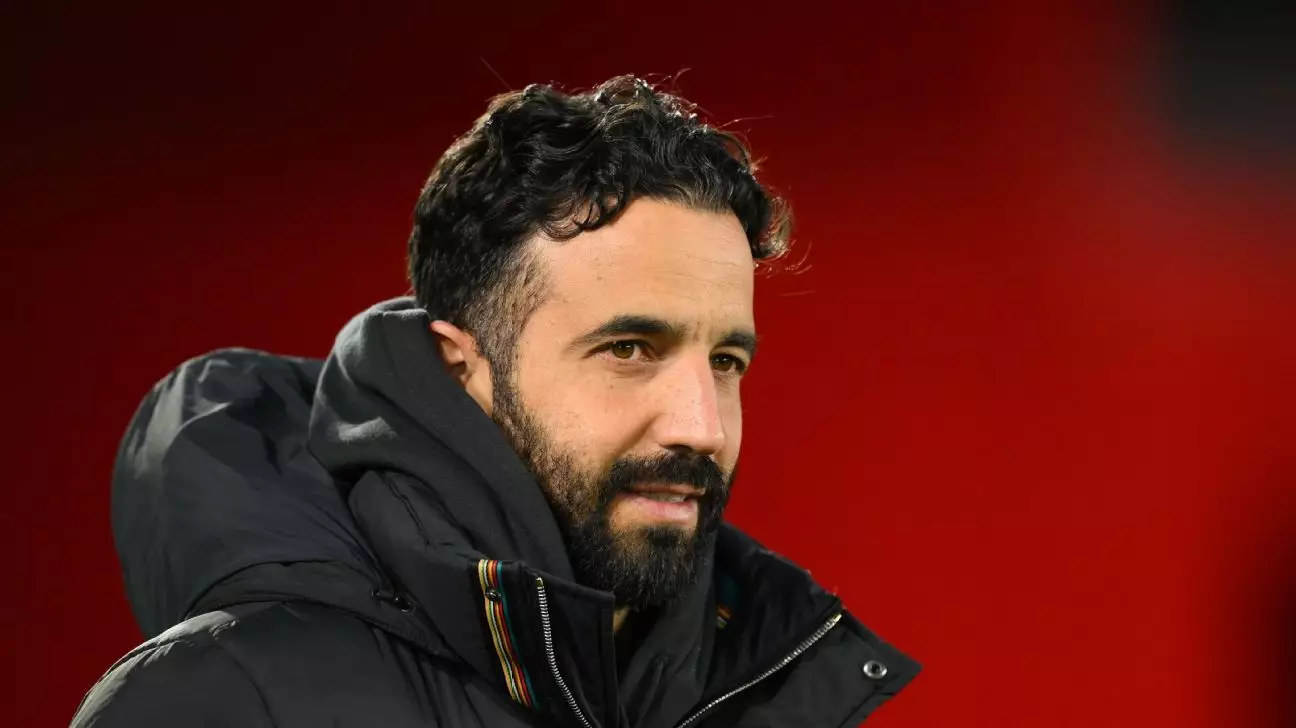In the world of football, expectations can often spiral into fantasies, leading to disappointment. Ruben Amorim, the newly appointed Manchester United coach, seems to be fully aware of this precarious balance. When asked about his ambitions for the club in the upcoming season, he candidly stated that it would be “crazy” to think Manchester United can clinch the Premier League title anytime soon. Currently resting in 13th place, the team’s performance has been underwhelming, trailing a staggering 36 points behind league leaders Liverpool. Amorim’s honesty reveals a profound understanding of the challenges that lie before him and the limitations of a club desperately trying to reclaim its once-glorious stature.
Amorim’s acknowledgment of the hard work ahead not only speaks volumes about his character but also sets the stage for a measured approach. Rather than indulging in unrealistic goals, he emphasizes the need for gradual progress, which resonates more positively with players and supporters alike. Fans appreciate a leader who can articulate a long-term vision rather than sugarcoat the difficulties that accompany rebuilding a team.
Building a Foundation for Success
Part of Amorim’s mission involves reshaping Manchester United’s identity and standards. He mentioned the necessity of implementing new benchmarks for the players, which often involves adjusting their mindset and performance to align with his vision. This is not an overnight process; instead, it requires patience, persistence, and an understanding that significant changes in a team’s culture and philosophy take time.
The ambitious target of winning the Premier League by the 2027-28 season coincides with the club’s 150th anniversary, symbolizing a moment of revival and celebration. Such longevity in goals ensures fans remain engaged, but it also puts a considerable amount of pressure on Amorim. His sense of urgency to improve the team is palpable, yet he articulates a clear understanding of the current inequality in league competition, particularly in relation to teams like Manchester City, Liverpool, and Arsenal, who have established themselves as the benchmarks of success in recent years.
Addressing the Squad’s Needs
A crucial element of Amorim’s strategy revolves around player acquisition and reintegration. He aims to bring in “big players,” suggesting that the scope of improvement isn’t just limited to tactical adjustments—there’s a strong emphasis on enhancing the squad’s quality. However, his definition of “big players” acknowledges that not every standout player fits his vision or style, which underscores a tactically nuanced approach.
Amorim’s recent comments about the potential return of midfielder Kobbie Mainoo to the lineup indicate optimism about rejuvenating the squad through existing talent. Yet, injuries remain a significant obstacle, as exemplified by Matthijs de Ligt’s doubts for an upcoming match against Manchester City after suffering an injury. Amorim’s ability to navigate these immediate challenges will be vital in setting the tone for the team’s performance on the pitch.
Competing with the Elite
Another striking element of Amorim’s mindset is his recognition of the task at hand. He does not shy away from admitting that Manchester United is not in a position to compete for the title in the immediate future. This self-awareness can serve as a motivational factor, not just for Amorim but also for the players and supporters, fostering a shared understanding of the road ahead. Genuine competitiveness will require more than just tactical shifts—it necessitates a cultural transformation within the club, one that emphasizes resilience and teamwork.
Moreover, Amorim’s focus on strengths rather than weaknesses plays a pivotal role in his strategy. By concentrating on what the team does well and leveraging it, he aims to inspire confidence and determination within a squad that has seen its share of turmoil. This approach can create a more cohesive unit, one that thrives on mutual support and collective aspiration, rather than letdowns from unmet expectations.
Ultimately, Amorim has a Herculean task ahead, filled with challenges and the need for gradual improvement. Yet, his frank assessments and strategic approach may just be what Manchester United needs to revitalize its ambitions and regain its status as a top-tier contender in the Premier League.

